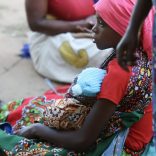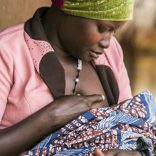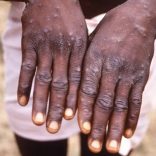The First Lady of Mozambique reinforces educational cooperation in Gorongosa during her visit to ...
Mozambique: Severe food crisis expected to persist until 2022 – report

File photo: Lusa
The food crisis in Cabo Delgado, northern Mozambique, is expected to persist next year, despite declining levels of armed violence, a humanitarian report said on Thursday.
“The ‘crisis’ situation (phase 03 of the CPI index, from 01 to 05) is expected to continue in Cabo Delgado,” at least until the end of the period under analysis, in January 2022, the document from the Famine Early Warning Network (Fews network), which supports the actions of government and humanitarian agencies, the document said.
The IPC is an international classification on the food security situation (Integrated Food Security Phase Classification) and ranges from level 01, minimum insecurity, to level 05, severe hunger.
In areas inaccessible even for humanitarian aid, due to the conflict between the military and insurgent groups, there is concern that vulnerable people are facing more extreme situations, with more acute food shortages, indicative of emergencies (IPC in phase 04), it said.
According to the document, this will be the case for inhabitants who have taken refuge in the forest to avoid the conflict or who have been taken hostage by insurgents.
“The conflict in Cabo Delgado is expected to continue with unchanged frequency in remote areas, while violence against civilians is expected to decrease,” the document said.
Although there will be displaced people returning to their areas of origin, the majority will likely remain far away and dependent on host family support, communities and humanitarian assistance, the analysis anticipates
On the other hand, limited access to seeds and other agricultural products for the coming season is also likely to increase pressure on humanitarian response resources, which have, for their part, struggled with a lack of funding.
“In July and August, humanitarian food assistance reached some 854,000 IDPs in Cabo Delgado and Nampula,” but “due to lack of funding, the World Food Programme (WFP) provided a single full ration in July to cover food assistance needs until August,” the Fews network report said.
This resulted in beneficiaries receiving food to cover only about 39% of their daily kilocalorie needs over two months.
The report notes that WFP announced that the distribution of a single full ration would resume in September to cover food assistance needs until October.
Fews, the Famine Early Warning Systems Network, brings together North American organisations and serves as a tool to aid humanitarian action.
The armed conflict between military forces and insurgents in Cabo Delgado has caused over 3,100 deaths, according to the ACLED conflict registration project, and over 817,000 displaced people, according to Mozambican authorities.
The fight against the insurgents gained new momentum in August after the reconquest of Mocímboa da Praia, a village where the rebels carried out their first attack in October 2017.












Leave a Reply
Be the First to Comment!
You must be logged in to post a comment.
You must be logged in to post a comment.